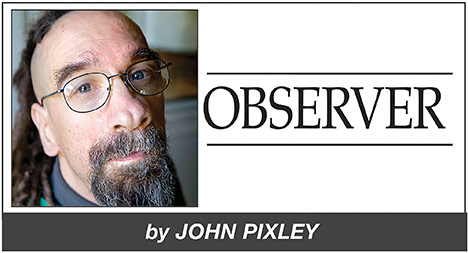Golden State, city attorneys to go head-to-head in court
Attorneys for the Golden State Water Company and the city of Claremont will come face-to-face in a Los Angeles County courtroom next week as the battle for the Claremont water system begins to take shape.
The water company contends that the city’s eminent domain complaint inadequately identifies the property it seeks to condemn from Golden State.
In its moving papers filed March 20, 2015, Golden State Water Company insists that in order to proceed with a proper assessment and valuation of the Claremont water system, they must know—and be able to instruct its appraiser—on exactly which of its assets Claremont wants to seize.
According to GSW, the city’s property description listed in the complaint is “broad and illusory,” lacking the required specificity under eminent domain law, and lists everything under the sun as “used and useful.”
In its response, the city of Claremont states that the property and location description provided in the complaint was taken directly from Golden State Water Company’s own government filings. In fact, a map of Golden State’s Claremont service area and a schematic of the Claremont water system were included with the city’s description, both of which were filed by GSW with the California Public Utilities Commission (CPUC).
The city also points out that Golden State has already proceeded to judgment for condemnation of its Big Bear water system by the city of Big Bear Lake. The description of the water system in that case parallels the type of description that the water company now contests with the city of Claremont.
“In short, what Golden State claims cannot be done has been done—judgment has been entered to condemn one of Golden State’s water systems by the type of description that Golden State now contests,” the city’s opposition document states.
The city also proffers the argument that the term “used and useful” refers precisely to what it says—utility property that is actually used to provide utility service. Without the term “used and usefeul,” Golden State could have objected to the description as taking away property it could sell for re-investment purposes.
“Golden State’s argument, in other words, sets up a ‘Catch-22’ so that Golden State could object if the term ‘used and useful’ was employed or object if it was not,” the city’s response points outs.
Citing a 2010 Urban Water Management Plan by Golden State that says seven of its 22 wells are “off-line due to groundwater contamination,” the city argues that some property located within Golden State’s system may not be in use to provide water service.
Golden State points out that one of the seven wells listed in the plan has since been returned to service and another will be shortly, asking, “Is the city taking these wells or not? Is Golden State supposed to appraise them or not?”
The water company says this detail is essential to properly value the system, but the city hasn’t provided the detail in its complaint.
According to the city, that’s because Golden State has refused to meet with city representatives to discuss which property the company still considers useful for serving its Claremont customers.
Golden State water asserts that “the power of eminent domain is rooted in the Fifth Amendment to the United States Constitution, which is part of the Bill of Rights. The Bill of Rights provides protection from the government —it does not place obligations on the citizenry to cooperate with the government.”
In other words, Golden State has no obligation to help the city of Claremont seize its property.
Also a point of contention with the water company is the offer made by the city to purchase the Claremont Water System before it filed the eminent domain case. Golden State Water claims the description of the property is inadequate, it failed to state the highest and best use of the property and it failed to state the applicable zoning.
While Golden State asserts that the city’s complaint should be dismissed because a written offer to purchase the Claremont water system fails to comply with government code, the city contends that such an attack cannot be brought by motion for judgment on the pleadings.
Ultimately, it will be up to Judge Richard Fruin to decide who made the better argument.
The hearing is scheduled for Thursday, April 30.
—Angela Bailey
news@claremont-courier.com









0 Comments